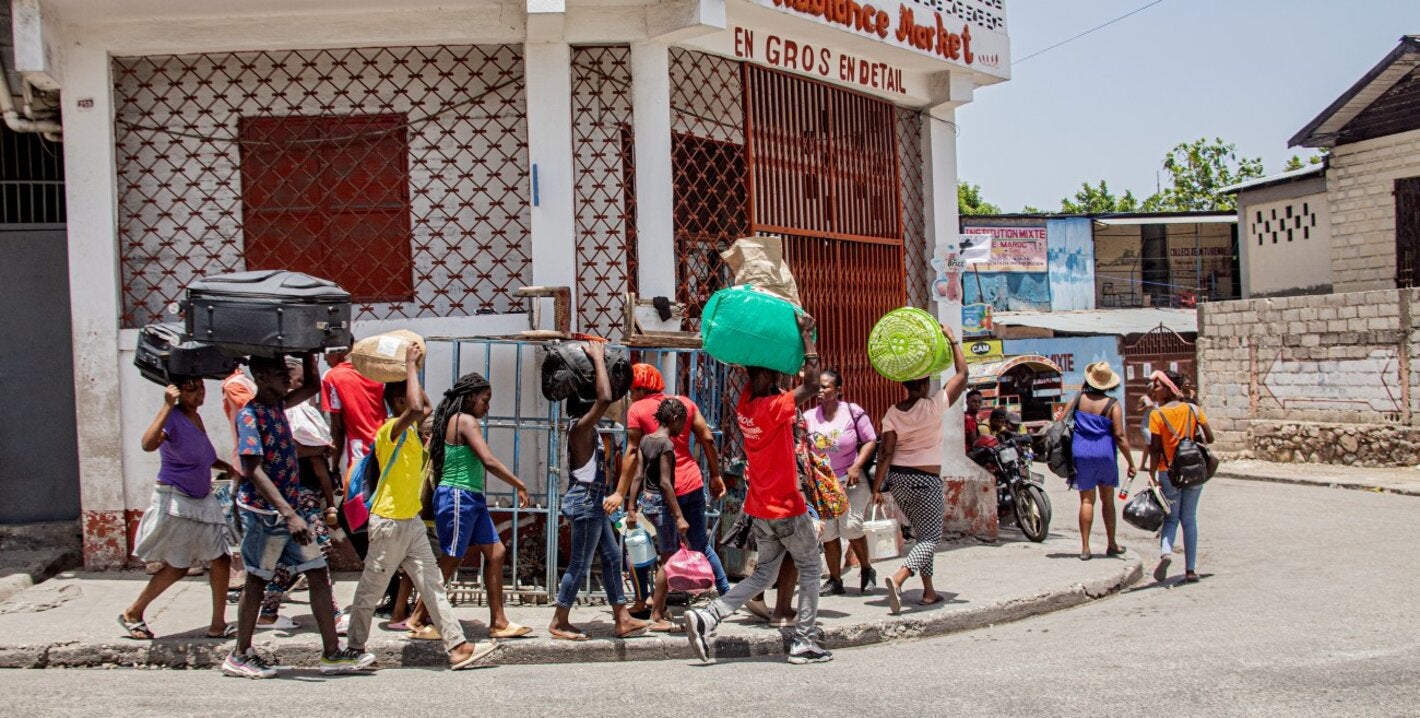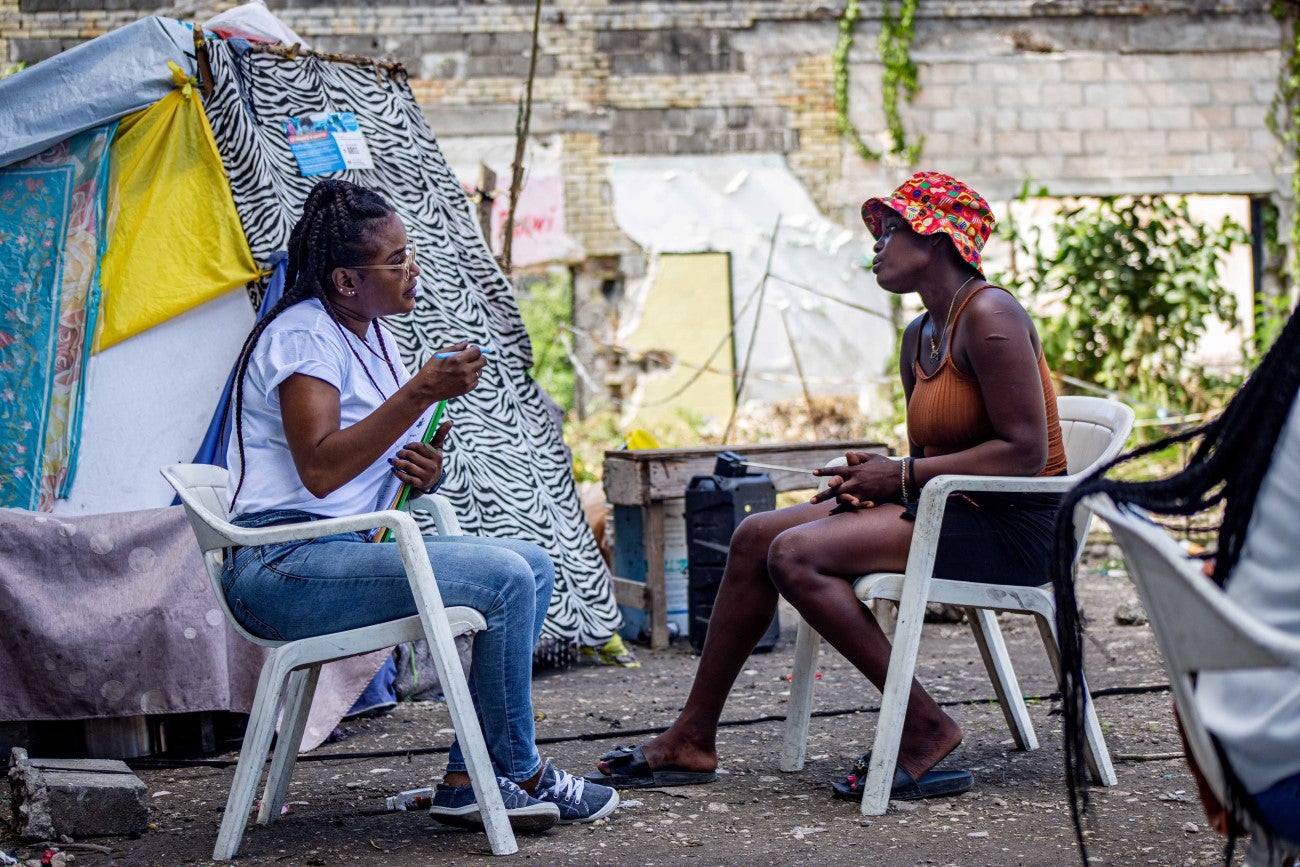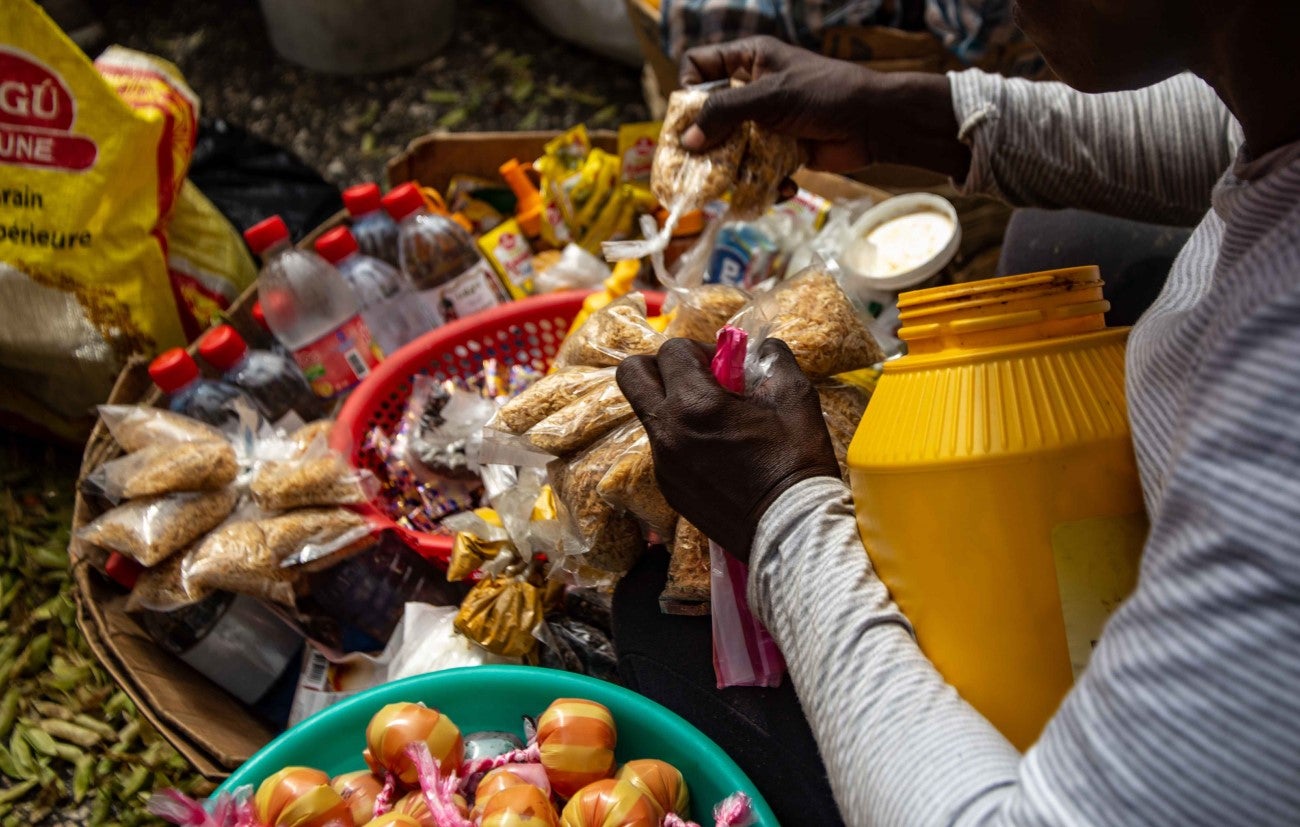
Port-au-Prince, June 3, 2024 (PAHO/WHO) - In support of the Ministry of Public Health and Population (MSPP) in its emergency response to the current security crisis, the Pan American Health Organization (PAHO/WHO) in Haiti is collaborating with the TOYA Foundation to help displaced women and girls who are survivors of violence caused by armed groups.
GBV on the rise
"My house was burnt down, the bandits raped me and my daughter, and I was infected with HIV," explains Patricia, 57, mother of 6 and a survivor of GBV for whom life turned upside down when her neighborhood was invaded by armed men. "The insecurity took everything from me, I was half crazy. I even thought of drinking chlorine to kill myself," she confides.
Like Patricia, a growing number of women and girls are collateral victims of the escalating violence which, since 2022, has led to massive displacement and an alarming increase in cases of GBV. To help these women in situations of physical, psychological and economic distress, PAHO/WHO is collaborating with the TOYA Foundation, an NGO specializing in psychosocial support and the defense of women's rights. With financial support from the Central Emergency Response Fund (CERF) and the Peacebuilding Fund (PBF), an assistance program has been implemented for over 200 displaced women in two sites in the Port-au-Prince Metropolitan Area.
Healing the wounds of the soul
"Since my aggression, I've been able to receive psychosocial help to start rebuilding my life," explains Patricia, who, like over 200 other women and girls, has benefited from psychosocial support in the form of individual sessions and discussion groups. Facilitated by MSPP mental health professionals, these sessions are designed to help survivors overcome the trauma and anxiety caused by the violence they have suffered. A toll-free "Alo TOYA" telephone line has also been set up to facilitate communication between GBV survivors and mental health specialists.
Food and hygiene kits were also distributed to the beneficiaries of this project to meet the most immediate needs of these women.
Helping people rebuild their lives
More than a hundred women have also received support to launch income-generating activities. "Thanks to this support, I've started a small business selling basic necessities. Now all I need is a permanent place to sit and organize my business," says Patricia, who hopes soon to be able to rent a house thanks to her income.
Thanks to the support she received, she was also able to relocate her daughter "out of the capital, to the provinces, as she could no longer bear the situation", she explains. Since the beginning of the year, nearly 100,000 people have left the Port-au-Prince metropolitan area for the provinces, particularly in the south of the country, according to the International Office for Migration (IOM).
"Providing both material and psychological support to the girls and women who are victims of this violence is an absolute emergency. This is why PAHO/WHO is mobilizing alongside the MSPP and its partners to enable these women and girls to embark on the road to reconstruction," explains Dr. Oscar Barreneche, PAHO/WHO Representative in Haiti.
Violence against women - in particular intimate partner violence and sexual violence - is a major public health problem and a violation of women's human rights. Violence has a negative impact on women's physical, mental, sexual and reproductive health. PAHO is committed to helping create safe and supportive communities for women and girls.





